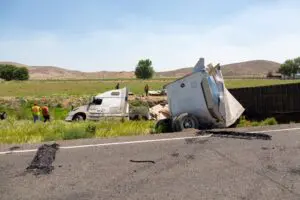What is an Insurer?
An Insurer is, “the underwriter or insurance company with whom a contract of insurance is made.” (Black’s Law Dictionary 946. 4th Ed. Rev. 1968). It is important not to confuse the insurer with the insured. The insurer is the party offering insurance, while the insured is the individual who receives insurance (the policyholder). Usually the insurer is an insurance company.
Insurers usually have a pool of policyholders at any given time. Insurers draft policies and agree to terms with policyholders. When a policyholder experiences a loss covered by the policy, they file a claim with the insurer. The insurer reviews the claim and covers the loss if it meets the policy’s terms.
Insurers are subjected to legal obligations. They, like the policyholders, are legally bound by insurance contracts. They are also regulated by government agencies, which serve to make them operate legally and fairly. If an insurer fails to process claims fairly, unreasonably denies claims, or delays payments, it may be acting in bad faith. Policyholders can take legal action against insurers for such practices.
More information about Insurer
Wilkes-Barre Tractor Trailer Accident Attorney

The Wilkes-Barre tractor trailer accident attorneys at Munley Law Personal Injury Attorneys have a history of winning tractor trailer accident cases in Northeast Pennsylvania and beyond. We represent injured drivers, passengers, truckers, motorcycle riders and pedestrians. Call 844-806-2997, chat now or submit our online form for a free review of your case.
If you hire a Wilkes-Barre tractor trailer accident attorney at Munley Law Personal Injury Attorneys you will have no upfront costs. We work on contingency and we don’t get paid until we win your case. We handle all out-of-pocket expenses so that cost will never stand in the way of your recovery.
How A Wilkes-Barre Tractor Trailer Accident Lawyer Can Help
An at-fault trucking company or their insurer will try to quickly and cheaply settle your case. They are motivated to move fast before you have found the right legal representation. […]
Read MoreMore information about Insurer
Easton Workers’ Compensation Lawyer
When you are injured at work, medical expenses can quickly add up. Workers’ compensation benefits are designed to help workers with financial support in the event of a workplace injury due to an accident or repetitive stress (such as back injuries or carpal tunnel) or work-related illnesses from poor, unsanitary, or unsafe working conditions.
Whether your injury occurred in Easton, Allentown, or elsewhere in the Lehigh Valley, finding an experienced Easton workers’ compensation lawyer can help. The team of dedicated attorneys at Munley Law’s Lehigh Valley law office will work tirelessly to ensure you receive maximum workplace injury benefits.
If your workers’ comp claim is denied, don’t panic. The experienced attorneys at Munley Law in Easton can help you appeal the decision and fight for the benefits you are entitled to. We have a strong track record of successfully handling denied claims and will use our expertise to advocate for you. […]
Read MoreMore information about Insurer
North Dakota Truck Accident Lawyer
North Dakota is a state of unique and diverse landscapes. Despite its middle ranking among American states for accident fatalities, certain highways and roads in North Dakota present significant dangers leading to commercial vehicle accidents.
accident fatalities, certain highways and roads in North Dakota present significant dangers leading to commercial vehicle accidents.
If you or a loved one has been in a big rig accident in Fargo, Bismarck, Minot, Grand Forks, or beyond, Munley Law’s North Dakota truck accident attorneys are here to help.
Why North Dakota Tractor Trailer Accidents Need a Truck Accident Lawyer
Due to their size and weight, trucking accidents can cause serious injuries and damages. A truck accident attorney understands the complex rules and regulations that trucking companies and drivers must follow. Their legal experience helps them identify who is at fault, deal with insurance companies to get fair compensation, gather important evidence, and ensure you receive the money you’re entitled to for medical bills, […]
Read MoreMore information about Insurer
What is Workers’ Comp Mediation?
What is Workers’ Compensation Mediation?
If you’re injured on the job in Pennsylvania, your workers’ comp lawyer will discuss with you the role a workers’ compensation mediation plays in your litigation process. Even if you are familiar with the Pennsylvania workers’ compensation mediation process, you might not understand how the settlement conference affects your claim, or the compensation you need for your injuries. Learning the basics of a workers’ comp mediation beforehand can give you the advantage you need, so you can obtain the outcome you want.
 Your workman’s comp attorney will prepare you for your mediation conference and answer any questions you may have ahead of time. However, the following information will guide you through a Pennsylvania workers’ compensation mediation from beginning to end, giving you an expert’s view on the proceeding. You’ll learn about the attendees at a workers’ comp settlement mediation, […]
Your workman’s comp attorney will prepare you for your mediation conference and answer any questions you may have ahead of time. However, the following information will guide you through a Pennsylvania workers’ compensation mediation from beginning to end, giving you an expert’s view on the proceeding. You’ll learn about the attendees at a workers’ comp settlement mediation, […]
More information about Insurer
Bad Faith Insurance Lawyers
When you pay your insurance premiums month after month, you expect your provider to uphold their end of the bargain if you ever need to file a claim. Unfortunately, some insurers prioritize protecting their profits over treating policyholders fairly. That’s when you need an experienced bad faith insurance lawyer in your corner.
fairly. That’s when you need an experienced bad faith insurance lawyer in your corner.
A bad faith insurance attorney knows the unfair tactics insurers use, like delaying or denying valid insurance claims and refusing to pay reasonable settlements. When an insurer violates its obligations, bad faith insurance claim lawyers fight to hold them accountable.
If you believe you have a bad faith insurance claim, contact the insurance lawyers at Munley Law to schedule a free consultation.
What Constitutes Bad Faith?
Bad faith refers to an insurance carrier acting unreasonably or breaking their contractual duties and obligations to you. Some common examples of bad faith insurance practices include:
- Delaying claims or payment with no valid basis for denial
- Unreasonable denial of claims for improper or misleading reasons
- Failure to properly investigate and evaluate a claim
- Refusing to settle for a fair, […]









